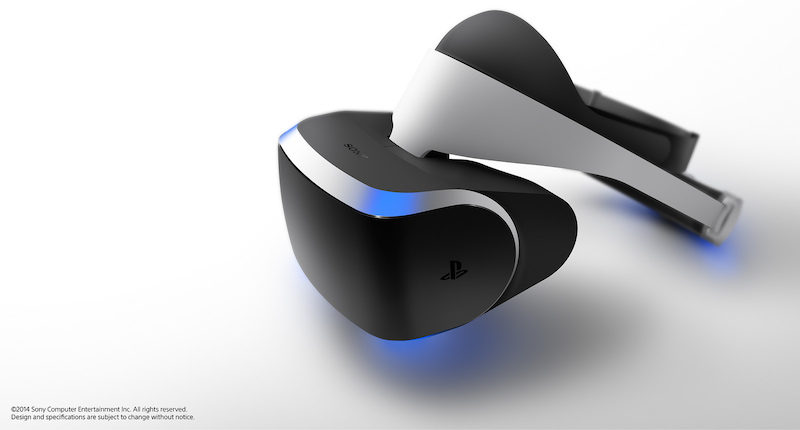Sony’s virtual reality headset, Project Morpheus, is real and for a lot of people it’s going to be an exciting new way to play games and digest content. For others it’s a gimmicky gadget they’ll never experience. Whatever you think of it, it’s Sony’s take on the future of gaming and everyone’s invited — at least all PlayStation 4 gamers are.
No ad to show here.
Shuhei Yoshida, President of SCE Worldwide Studios kicked off the event at the 2014 Game Developers Conference. “At SCE we view innovation as an opportunity to build on our mission to push the boundaries of play Project Morpheus is the latest example of innovation from SCE, and we’re looking forward to its continued development and the games that will be created as development kits get into the hands of content creators.” It’s named after the god of dreams, Morpheus. Laurence Fishburne was nowhere to be seen, perhaps he will in the inevitable media storm when the VR headset launches?
Innovation is something Sony excels at but its history with gadgets outside of the sphere of traditional gameplay is spotty at best. Remember the PlayStation Move or the EyeToy? Us neither. How can Morpheus change that, and actually pull us into our games? By letting it be torn apart first by developers, much with what happened with that other VR headset, Oculus Rift.
Most of the information regarding Morpheus is PR-speak such as “Presence is like a window into another world that heightens the emotions gamers experience as they play.” The hard numbers surrounding Morpheus makes the device more palatable though.
Features
Let’s begin with the basics. Morpheus has a visor-style head mounted display combined with inertial sensors that will work with the PS4’s camera to track head movement and orientation; this should ensure 1:1 interaction between the player and the virtual worlds.
With the PS Move (that glowing pink/blue/yellow fuzzball Wii controller) in hand, and Morpheus affixed to the skull, games will take on that fully immersive feel which developers crave to create. Apparently, Morpheus will “reproduce” the objects in the players hands. This then, is a leg up over Oculus Rift, which doesn’t have a dedicated controller to replicate guns, swords, shields etc. Are the specs suitable for next-gen gaming? Of course it is. Morpheus will also function perfectly with the DualShock controller.
The panel resolution per eye, as well as the refresh rate is an important factor and luckily Morpheus is blessed with a full HD screen for each eye. Field of view is 90-degrees, which beats the human standard of 60-degrees — this means that we can see far beyond our visual limitations, which can only be a good for gamers. Speaking of which, Morpheus was demoed with Thief, EVE Valkyrie, The Deep and The Castle, two upcoming games from Sony. The Deep looked interesting, as it was essentially a VR-shark cage. Other big-name developers such as Crytek and Epic Games are already onboard.
3D Audio is an excellent addition and Morpheus will recreate sounds depending on the position of the player’s head. Imagine hearing the ping of a bullet as it ricochets against a wall near your ear, or a laser whining overhead as you look up to stare at the near miss that could have taken your head off. These are sounds once trapped in a 2D plane, now immersed in a 3D world. While Dolby Sound recreates positional audio, it’s pleasing to for once to realise that a gadget can plunge us headlong into gaming oblivion as its meant to be.
As for a cost estimate, let’s pretend that it will be the same as Sony’s HMZ-T3W, a wearable head-mounted 3D TV. Its price is an unfortunate US$999. Let’s hope for something less.
Can it be, realer than real?
Ultimately, it’s about the experience presented by the game or medium that draws us. If the content is good enough, we don’t require a VR headset and the sudden influx of these various methods of game and media interaction is worrying. Has gaming reached its nadir in the eyes of Sony (and others), is VR the answer to lacklustre sales? Sadly no, but it’ll be fun to see how Sony can deliver on its promise of “next level immersion”.
